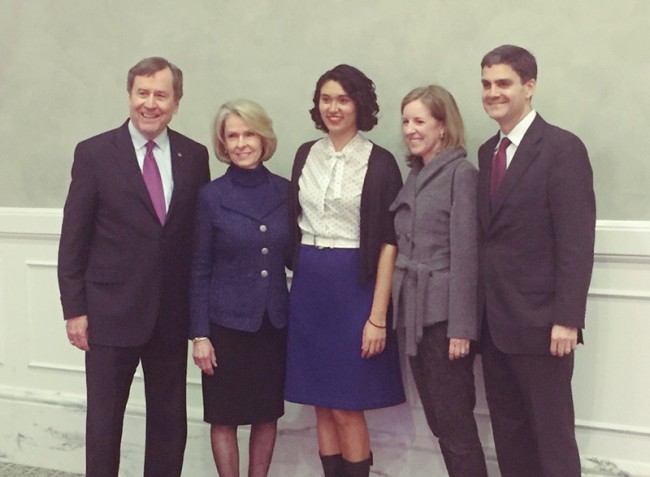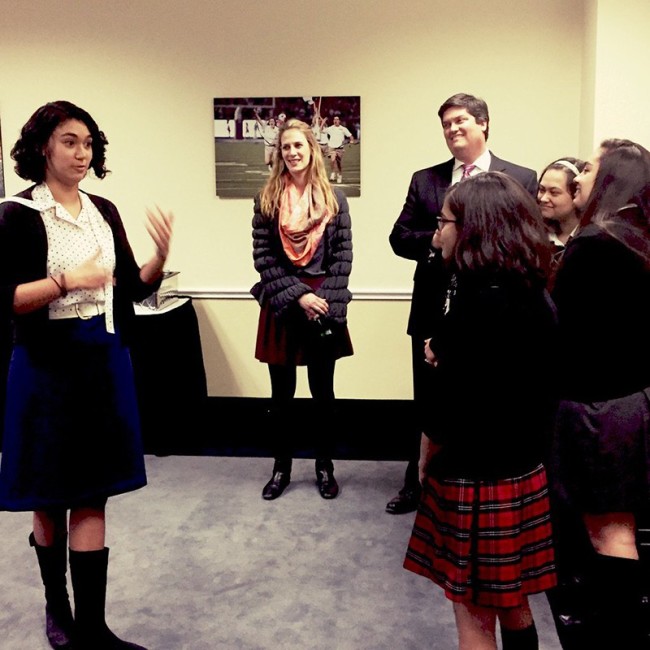
The SMU Tate Lecture Series welcomed spoken-word poet and author Sarah Kay to campus Jan. 26 to begin the second half of the of the lecture’s 34th season. Kay, most widely-recognized for her 2011 Ted Talk about spoken-word poetry, is also the co-founder and co-director of Project VOICE, as well as an educator, singer and songwriter.
Kay discovered her love for spoken-word poetry at 13 years old, and soon began performing in her home state of New York City at age 14. Not only was she the youngest person on record to compete at the prestigious National Poetry Slam in Austin, but according to SMU President R. Gerald Turner, is the younger person to give a Tate Lecture at 27 years old.
Spoken-word poetry is a style of entertainment that involves performance-based poetry, concentrating on word play and story telling. According to Kay, spoken-word poetry is a form of poetry that just “can’t stay on the page.” Instead, it comes to life.
Kay began the night by performing one of her spoken-word poems, one of four she would perform that night, before sharing her life experiences. She also explained what spoken-word poetry has taught her, and how it can impact the world.
“You are never too young or old for poetry,” Kay said. “Poetry should feel accessible […] feel human.”
Kay explained that growing up, she would go to open mic nights at bars where spoken-word poetry was performed. Even though she was the youngest one in the room, she fell in love with the art form, claiming that through spoken-word poetry, she “didn’t feel stupid for being human.”
Kay said that in these open mic nights in New York City, she found “immunity, empowerment and a place to heal.”
Kay explained the way that spoken-word poetry has help her during numerous breakthroughs in her life as she grew up and continues to mature, as well as the ways it has changed those who she educates and shares her poetry with.
According to Kay, her love for spoken-word poetry and the impact she knew it could make inspired her to start Project VOICE. Beginning as a high school club, Kay described how she waded through the red-tape of school administration to begin a club about something it seemed as though no one cared about. However, the payoff has been momentous.

By beginning Project VOICE, Kay has been able to educate numerous children and share her work with people not only around the United States, but around the world. She shared the story of her travels to Nepal, and the way that spoken-word poetry helped her students there through the recent terrorist attacks that threatened the lives of those in her classes. She also shared her experience in teaching a ninth-grade student who was autistic, and the way that spoken-word poetry was able to give him a voice and the confidence to participate academically.
“I am not interested in creating an army of poets, but human beings with skills to articulate stores, the skills to listen, the skills to learn,” Kay said. “These are the people we need.”
Kay said that she believes in spoken-word poetry because it allows people to find their potential and find their joy.
“When I write poems, it feels like I am laying bricks, helping building something that is part of a project or mission,” she said. “It is helping someone love… someone heal.”











